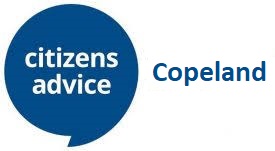Money Confidence
Select advice topic

Many students live in accommodation provided by their university. This is mainly halls of residence which are often located close to the university and are particularly popular for first year students.
This page provides some information about university halls of residence and what your housing status is likely to be if you live in one.
This information does not cover accommodation in private halls of residence managed by private companies.
Halls of residence
University halls of residence provide accommodation specifically for students and are often located within or nearby the university campus. The accommodation is generally available during term-time, although some may be available for certain students for the full calendar year.
The type of accommodation in halls can vary. Some provide single rooms with shared bathrooms, kitchens and communal areas, others provide ensuite rooms with shared cooking and communal areas. Some halls also provide meals and a bed linen and cleaning service. Some provide studio flats.
The accommodation office at your university can give you information about what accommodation is available, how much it costs and how you can apply.
Paying for halls of residence
You will probably have to pay a deposit for accommodation in halls. This is to secure against any damage or rent arrears at the end of your agreement. You may also be charged an administration fee to cover the administration costs of booking a room. This is sometimes referred to as a ‘booking’ fee and is often non-refundable.
Rent or fees for accommodation in halls of residence is often due at the start of each term, which coincides with student loan installments. However, universities may offer other payment dates.
Bills, such as heating, lighting and water, are generally included in the price of the accommodation.
Students in halls of residence don’t have to pay council tax.
Universities that provide halls of residence accommodation are also required to belong to a ‘code of standards’.

Student housing – standards in halls
Universities that provide halls of residence must belong to a government approved code or be licensed by the local authority.
The codes aim to ensure that you have safe, good quality accommodation. This means that they can offer you a way of dealing with things if something isn’t right in your accommodation. This page outlines more information on the codes and how you can use them.
What are the codes?
There are three codes and your university will have signed up to one of the first two codes below. The third code is for halls of residence owned and managed by private companies.
The codes are:
- Universities UK/Guild HE Code of Practice for the Management of Student Housing, often known as the Student Accommodation Code
- Accreditation Network UK (ANUK)/Unipol Code of Standards for Larger Residential Developments for student accommodation managed and controlled by educational establishments
- ANUK/Unipol Code of Standards for Larger Developments for student accommodation not managed and controlled by educational establishments.
Your university should tell you which code they have signed up to.
The codes set out standards to measure the good management practice of student accommodation. There are standards on a range of areas such as:
- repairs and maintenance
- fire, gas and electrical safety
- security
- management of your tenancy/licence
- complaints

Making a complaint
If you’re not happy with your accommodation, you should report the problem to your accommodation manager in the first instance.
If nothing happens or you don’t think the problem has been resolved then you can consider making a complaint using the code. Your students’ union may be able to help you with this.
If your university has signed up to the Universities UK (UUK) code, the complaint will go through your university’s complaints procedure. The final stage for any unresolved complaints is to the Office of the Independent Adjudicator.
If your university has signed up to the ANUK code, you need to contact the National Code Administrator. The final stage for any unresolved complaints is to refer the matter to the Chair of the Complaints Tribunal.
The National Union of Students (NUS) sits on the UUK and ANUK boards of management, which gives them the opportunity to feed back on general issues on behalf of students. If you think your university is providing poor accommodation or is not acting in accordance with the code it has signed up to, you can also raise the matter with the NUS.
More information about the complaints procedure under each of the codes is available in the codes themselves. More information about the NUS is available from its website.
Other university accommodation
Apart from halls of residence, some universities also own houses and flats or some universities manage this type of accommodation on behalf of a private landlord.
If you rent this type of accommodation, the university is your landlord, and it is responsible for managing the accommodation and for doing repairs.
Your housing status in halls of residence or other university accommodation
If you live in accommodation that is provided by an educational institution such as a university, you will be an occupier with basic protection. This is a term used in housing which helps to identify your housing rights.
An occupier with basic protection has limited rights and as long as your landlord follows the correct legal process you can be evicted quite easily.

